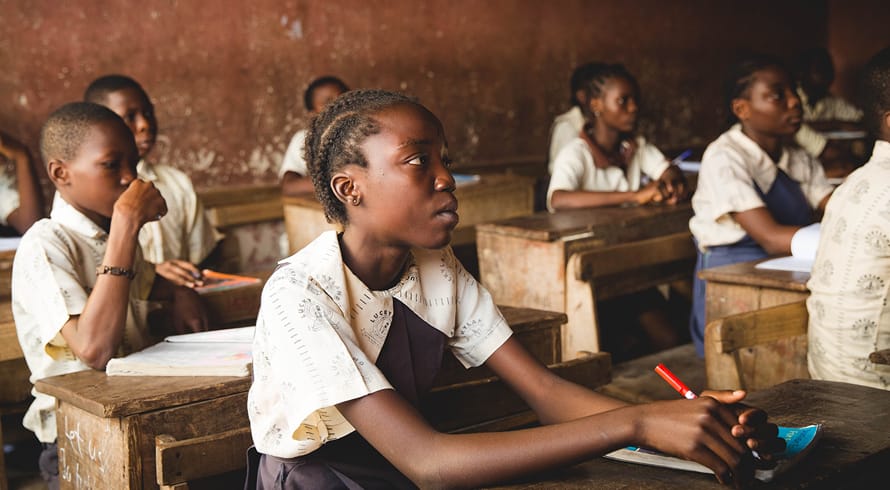The first Labour Court judgment written in Sesotho – What is the future?
At a glance
- Goliath AJ emphasized the importance of human rights and equality in the introduction to his judgment, highlighting that until recently, these principles were not true for the majority of South Africans.
- The first judgment in Sesotho was delivered by Sethene AJ in the Truworths Limited v MTM obo M Mochekgechekge case, with the aim of ensuring that the defendant, who didn't understand English, could comprehend the reasons for the court's ruling.
- The issue of multilingualism in the South African legal system is complex and requires a concerted effort from the government and the legal fraternity to develop language resources and promote accessibility to legal processes in all official languages. A comprehensive approach is needed, rather than relying on ad hoc measures.
The above has become especially relevant recently when the first judgment penned in Sesotho, by Sethene AJ, was delivered by the Johannesburg Labour Court in Gauteng in Truworths Limited v MTM obo M Mochekgechekge (2022). The judgment follows in the steps of the Constitutional Court judgments of Daniels v Scribante 2017(4) SA 341 (CC) (Scribante Judgment), where a separate concurring judgment was delivered in Afrikaans by Froneman J.
In brief, the matter was an application brought by Truworths, to review a decision of the CCMA, where the CCMA found that Truworths unfairly dismissed Ms Mochekgechekge for violating the Company’s Cash Discrepancy Policy. The court set aside the CCMA’s finding and held that Ms Mochekgechekge’s dismissal was fair.
Considering that Ms Mochekgechekge did not understand English, necessitating her need for an interpreter at the CCMA, the judge decided to write his judgment in Sesotho. His reasoning was so that she would be properly informed of the reasons why the court ruled against her. The reasons for the court’s finding included, inter alia that:
“ …bopaki boo Truworths e faneng ka bona ho Mokomishinara bona le botsitso haholo” and that
“Truworths e bontshiste botho le pelo e telele ho tloha ka selemo sa 2014 go ya ho 2018. E lekile ho qoba ho leleka Mme Mochekgechekge. Empa e hlolehile”.
To translate the above, “the reasons for the judgment were that the evidence presented by Truworths was sensible and persuasive, and that Truworths had tried by all means to avoid dismissing Ms Mochekgechekge for her misconduct.”
According to the judge, had the above reasons been delivered in a language that Ms Mochekgechekge could not completely understand, such as English, she would have found it difficult to understand the reasons why the Labour Court set aside the CCMA award in her favour.
This highlights the importance of delivering judgments in the official South African languages, where parties to the matter are not conversant in English or find the language difficult to comprehend. An essential function of our judicial process is to ensure that all who appear before the courts and in this case the CCMA are offered a fair hearing.
It is limiting to view this position as only applicable to in-court proceedings and it is reasonable to understand the responsibility of the judiciary to extend it further and to make its judgments comprehensible to the parties that appear before it. This approach would enhance our understanding of section 35 of the Constitution, which is a right to a fair trial. At the same time, it is important to recognise the distinction between a right to a fair trial and language rights. In the Canadian case of R. v. Beaulac [1999] 1 SCR 768, the Supreme Court of Canada, articulated this distinction as follows:
“The right to a fair trial is universal and cannot be greater for members of official language communities than for persons speaking other languages. Language rights have a totally distinct origin and role. They are meant to protect official language minorities in this country and to insure the equality of status of French and English.”
In other words, the right to a fair trial requires that the parties in the proceedings are provided an opportunity to be heard in a language that they are comfortable expressing themselves in, irrespective of whether it is an official language or not. Language rights, on the other hand, specifically relate to the recognition and protection of official languages and the communities that are connected to those languages.
While the promotion of multilingual judgments is a step in the right direction towards fulfilling the objective of closing the cultural divide in South Africa’s diverse and fractured society and promoting equality and accessibility to legal process, the issue of multilingualism in the judiciary and in the law more generally is a complex one.
South Africa has 11 official languages (and other languages recognised by the Constitution as important for cultural and religious reasons). Statutes are drafted in English with limited availability in other languages. A vast majority of judgments are delivered in English and legal processes are by default also conducted in English, with the assistance of an interpreter where this is required. The privileging of English is a consequence of our colonial history but also the reality of the global commercial community.
A formal move to multilingualism would require a deliberate and concerted effort at developing and augmenting the language resources within the legal sphere – from the point of education as well as at parliamentary level and at the level of legal adjudication such as the CCMA, bargaining councils and courts. Further to this, judgments have precedent value and need to be understood in the wider legal fraternity as our entire system of law is based on following precedents.
Whether criteria in relation to proficiency in languages other than English is required for judges and commissioners is a question that would also need to be considered. In Canada, bilingualism, in the form of both English and French, is entrenched in the legal domain. Legislation is drafted simultaneously in both languages and legal process in the Supreme Court is conducted in both languages.
For multilingualism in the South African legal environment to be meaningful, resources and a commitment towards achieving this aim by government and the legal fraternity are required rather than an ad hoc approach to writing judgments in other official languages that is dependent on the ability and amenability of the presiding officer. For example, issuing arbitration awards in official languages other than English or in addition to English where this would be valuable for both parties, would enhance accessibility and mitigate the problem of language as a barrier to understanding legal reasons furnished in orders and awards. But this is easier said than done and comes with additional costs. Would this curb the number of approaches thereafter to the Labour Court which in most cases sits as a court which oversees the awards of the CCMA and bargaining councils?
An ad hoc approach is not the solution to a complex societal issue. What is required is giving effect to what Froneman J reminded us of in his Scribante judgment:
"Die Grondwet bied ons almal ’n geleentheid om ’n samelewing te probeer ontwikkel wat die onreg van ons verlede aanspreek sonder miskenning van die menswaardigheid, vryheid en gelyke behandeling van al die land se inwoners. Dit is ’n geleentheid wat ons nie mag versmaai nie. (The Constitution affords us all the opportunity to attempt to develop a society where the injustice of the past can be addressed without the denial of the dignity, freedom and equal treatment of all the inhabitants of this country. It is an opportunity that we dare not ignore]”.
The information and material published on this website is provided for general purposes only and does not constitute legal advice. We make every effort to ensure that the content is updated regularly and to offer the most current and accurate information. Please consult one of our lawyers on any specific legal problem or matter. We accept no responsibility for any loss or damage, whether direct or consequential, which may arise from reliance on the information contained in these pages. Please refer to our full terms and conditions. Copyright © 2026 Cliffe Dekker Hofmeyr. All rights reserved. For permission to reproduce an article or publication, please contact us cliffedekkerhofmeyr@cdhlegal.com.
Subscribe
We support our clients’ strategic and operational needs by offering innovative, integrated and high quality thought leadership. To stay up to date on the latest legal developments that may potentially impact your business, subscribe to our alerts, seminar and webinar invitations.
Subscribe




